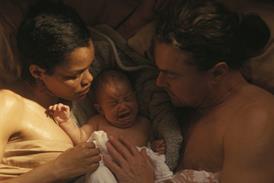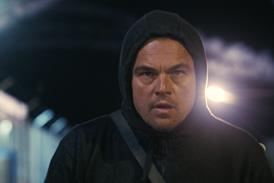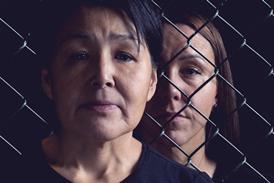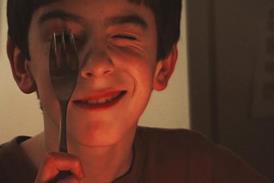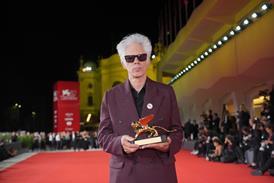Hadrah Daeng Ratu’s culturally specific shocker is her fourth collaboration with writer Lele Laila
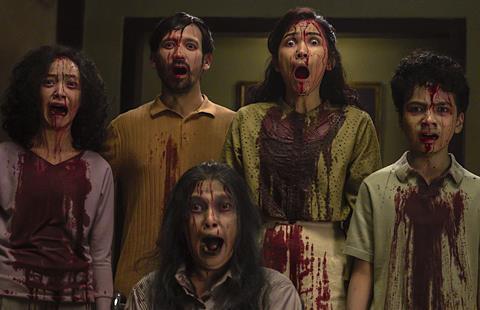
Dir: Hadrah Daeng Ratu. Indonesia. 2025. 99mins.
When a young woman in rural Indonesia can no longer bear the trauma and humiliation stemming from the petty resentments and misplaced rage of her family, she resorts to deadly black magic with middling but grisly results. Director Hadrah Daeng Ratu’s horror tale The Book Of Sijjin And Illiyyin could be reductively described as an Indonesian The Exorcist as filtered through Muslim mythology, giving the tired sub-genre a modest, culturally specific shot in the arm.
Strikes a balance between the familiar and the fresh
The Book Of Sijjin And Illiyyin is the fourth collaboration for Hadrah and writer Lele Laila, which includes 2023’s Sijjin, the similarly themed (but unconnected) remake of Alper Mestci’s 2014 Turkish chiller Siccîn. Prior to that, Laila made a name for herself in horror on the strength of KKN Di Desa Penari, Indonesia’s highest-grossing domestic film until June of this year, when it was eclipsed by the animated fantasy Jumbo. This latest work demonstrates an evolution in the pair’s filmmaking and that, together with some affecting body horror, should take it a long way on the speciality festival circuit. The film should also gain traction among genre fans and could secure the attention of a dedicated streamer.
Though rote in its cinematic possession iconography – cracked lips and chalky skin, otherworldly limb manipulation, demonic screeching, a holy man heroically banishing an evil entity – Hadrah and Laila also turn a keen eye towards toxic family dynamics, as well as our inherent duality. No matter how kind, devout or innocent anyone may be, humanity is marked by a fundamental ability to be simultaneously cruel, disbelieving or corrupt.
The title is taken from a sort of karmic ledger, an Islamic book that registers bad deeds in the Book of Sijjin and good ones in the Book of Illiyyin. (The tomes are named after Quranic terms that roughly refer to the underworld and to paradise.) As a child, Yuli (Firzanah Alya) watches over dinner one night as her mother is consumed by a malevolent spirit and eventually dies at its hand, along with her father Satya (Eduward Manalu, also seen in fellow Fantasia title The Verdict). The police show up the following morning to investigate the disturbance, as does another woman, Ambar (writer/actress Nai Djenar Maesa Ayu), who claims to be Satya’s wife.
Twenty years later, Yuli (now played by Yunita Siregar from crime series Ratu Adil) is living and mostly working for Ambar and her bitter shopkeeper daughter Laras (Dinda Kanyadewi). They never let Yuli forget she is the illegitimate child of a mistress, and make her life as unpleasant as possible when they are not ignoring her. After Ambar passes away, Yuli reaches breaking point and visits a shaman for guidance on how to make the family – which includes Laras’s husband Rudi (Tarra Budiman), her pre-teen son Dean (Sulthan Hamonangan) and her pious daughter Tika (Kawai Labiba) – pay for mistreating her. The shaman uses black magic to summon a djinn, but it is up to Yuli to perform the nightly ritual that unleashes it on her tormentors, deserving or not. The plan inevitably backfires.
For all the talk about human nature, accountability and festering anger, it is the scares and gore that make or break a horror film – and, on that front The Book Of Sijjin And Illiyyin does not disappoint. Laras’s shop assistant meets a fate that would not be out of place in a Final Destination film, and the decaying corpse over which Yuli casts her spells has an olfactory quality that adds to the dread even as the film’s structure flirts with repetitiveness.
Siregar and Labiba do most of the heavy lifting in the performances; the former bringing empathy to her character’s desire for revenge, the latter toggling between panic at the supernatural events and questioning her own sanity. Hani Pradigya’s cinematography is lush and immersive, and Hadrah aims for maximum disquiet while striking a balance between the familiar and the fresh, largely steering clear of conventional jump scares and over-exposition for anyone fuzzy on Muslim lore. After all, good, evil and family friction cut across creed and culture.
Production companies: Rapi Films, Screenplay Pictures
International sales: Barunson E&A intl@barunsonena.com
Producer: Gope T Samtani, Sunil G. Samtani, Sunar S. Samtani
Screenwriter: Lele Laila
Cinematography: Hani Pradigya
Production design: Tommy D Setyanto
Editor: Wawan I Wibowo
Music: Andre Harihandoyo, Rahadian Winursito
Main cast: Yunita Siregar, Dinda Kanyadewi, Kawai Labiba, Tarra Budiman, David Chalik, Nai Djenar Maesa Ayu



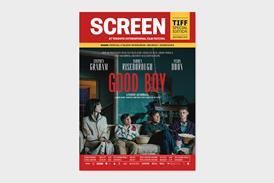

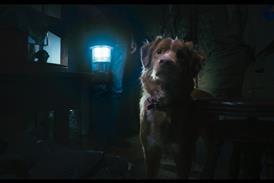



![[Clockwise from top left]: 'The Voice Of Hind Rajab', 'A House Of Dynamite', 'Jay Kelly', 'After The Hunt', 'The Smashing Machine'](https://d1nslcd7m2225b.cloudfront.net/Pictures/274x183/1/7/0/1459170_veniceawards_837515.jpg)



